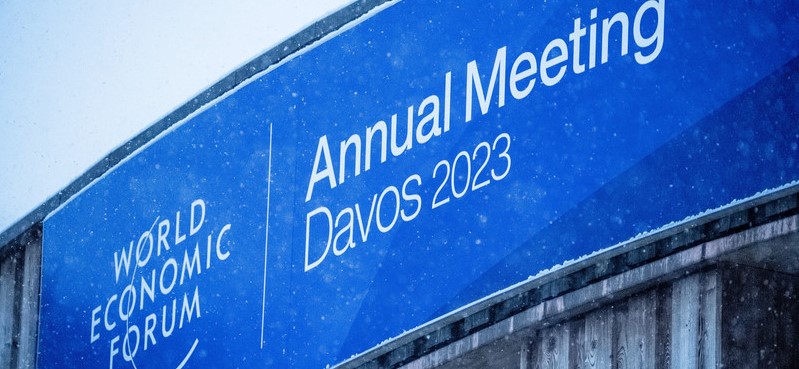At Davos the Chinese change strategy

The following quotes are from an interesting (paywalled) article at the Telegraph, and speak to the impact of Putin’s failure in Ukraine and the resurgence of Western confidence.
China has extended the olive branch to Western democracies and global capitalists alike, promising a new era of detente after the coercive “wolf warrior” diplomacy of the last five years.
Vice-premier Liu He, the economic plenipotentiary of Xi Jinping’s China, told a gathering of business leaders and ministers in Davos that China is back inside the tent and eager to restore the money-making bonhomie of the golden years.
“We must let the market play the fundamental role in the allocation of resources, and let the government play a better role. Some people say China will go for the planned economy. That’s by no means possible,” he said.
“All-round opening-up is the basis of state policy and the key driver of economic progress. China’s national reality dictates that opening up to the world is a must, not an expediency. We must open up wider and make it work better,” he told the World Economic Forum ...
It is a subtle way of telling the world that the neo-Maoist fever of Xi Jinping’s second term has subsided since the 20th Party Congress in October. Xi’s third term is going to be a giant pivot back to international harmony.
China is calling off its ruinous assault on technology companies – the country’s most dynamic entrepreneurs, but also the regime’s most powerful political foes ...
Vice-premier Liu He’s conciliatory pitch is also a signal that China will return to its longstanding position as a stakeholder of the existing Davosian global order rather than a revisionist power determined to overthrow it.
“We need to uphold an effective international economic order. We have to abandon the cold war mentality,” he said, pledging a push for “economic re-globalisation”. There was not a whiff of criticism of the US or the West. No speech of this kind has been delivered by a top Chinese leader for years ...
It goes well beyond the first signs of a tentative thaw at a US-China summit late last year, suggesting that China’s 20th Party Congress marked a watershed moment in Chinese strategic thinking. Whether it is authentic or tactical remains to be seen.
In a sense, the new policy is a recognition by the Communist Party that the democracies are not as weak as they looked a year or two ago. The West still controls the machinery of global finance, technology transfer, and maritime trade. The war in Ukraine has revealed that it can be remarkably unified and has a backbone of steel when seriously provoked.
Xi’s profession of friendship “without limits” for Vladimir Putin is surely an embarrassment he would rather forget – though there are some advantages for Beijing in a dependent Russia with nowhere else to turn. Russia’s military has been exposed as a paper tiger. Its value as an ally is enormously degraded.
Above all, Xi Jinping discovered that the US controls the global supply of advanced semiconductor chips, the primary fuel of the 21st century technological economy.
Without that you are nothing. China’s repeated efforts to close the chip gap have all faltered, and the latest has just been abandoned due to prohibitive costs ...
Deng Xiaoping long pursued a policy of “bide your time and hide your strength”. When Xi Jinping abandoned this restraint and switched suddenly to a posture of impatient menace he revealed what China might be like as the global hegemon.
This reached its apotheosis in pandemic triumphalism. It was not an attractive spectacle. Switching back even more suddenly to global happy talk will be a hard sell.
As to the Western feeling about Xi’s “impatience”, compare the above with the following boilerplate from the Daily Mail, published on 19th October last year:
Get ready for China ‘on steroids’: Xi Jinping will complete his totalitarian spy-state, take on the US and aim to break Western world order if he is given historic third term as leader, experts predict
● Xi Jinping set to become Chinese leader for third term this week, the first since Mao to rule for so long.
● Experts predict he will use term to complete ‘totalitarian’ spy-state using technology to repress all opposition.
● Xi will also take aggressive stance with the West and try to put China on equal footing with the US, they added.
● Ultimate aim is to break Western world order and establish another system with China at the centre, they said.
My immediate take on the change of strategy? This pivot is almost certainly the result of Putin’s big gambit in Ukraine and the surprise of the West’s unified response to it, allied to the (for Beijing) straitening success of the Western economies in surviving Putin’s energy war. Since the party’s 20th conference last October, when the threat to Taiwan was at its height, there appears to have been a decision that Putin has failed and there are costs to forging ahead with that “unlimited friendship” which a pragmatic Chinese leadership is unwilling to pay. Probably at this time. Probably because formal international support elsewhere for Putin is limited to Iran, North Korea and some fly-blown African place. Support for Glazyev’s dollar reserve replacement is strong across the southern hemisphere, and probably now includes Lula’s Brazil in addition to Saudi. But then the Western elites are not at all hostile to it, either. Quite the contrary. So Beijing is returning to geo-economics, because it is a stronger suite to play. I don’t think that the Middle Kingdom goal has or will be dropped. But the Chinese are good at patience.
